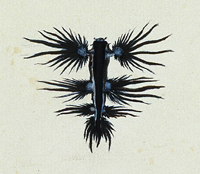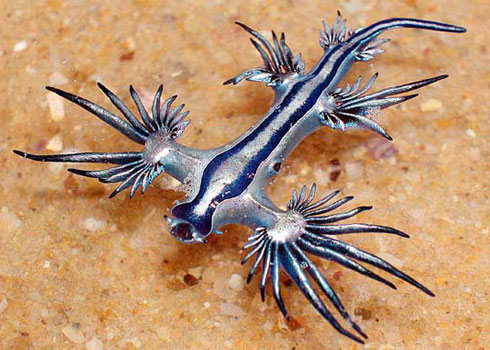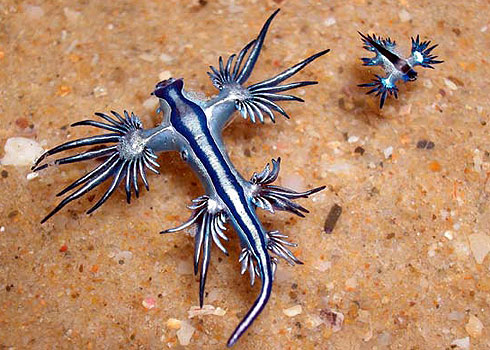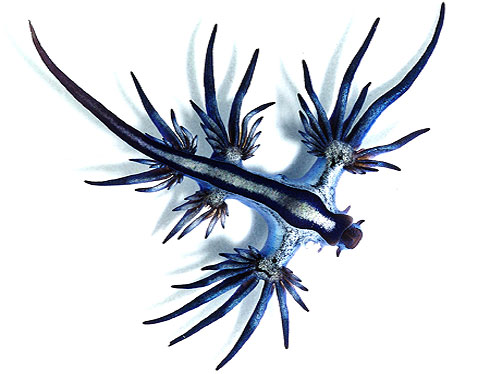Glaucus atlanticus (blue sea slug)
The Glaucus atlanticus, or blue glaucus (Forster, 1777) is one of only two species in the family Glaucidae.
The animals float upside down at the surface of the sea, keeping afloat by swallowing air which is stored in their stomachs.
Their diet is mainly made up of hydrozoans including the Portuguese Man o’ War - they even eat the stings. As well as getting nourishment from the stings, they use them for their own defence.
Species detail

Original drawing of Glaucus atlanticus by Sydney Parkinson, the illustrator aboard the HMS Resolution © NHM Picture Library
The first time this species was discovered was during Captain Cook’s second voyage to the Pacific in HMS Resolution.
Aboard the ship were the scientists Johann Reinhold Forster and his son, Johann Georg Adam Forster who described the animal in his 1777 publication.
Also aboard the ship was Sydney Parkinson, a Scottish illustrator and natural history artist, who drew the specimens collected as well as maps.
-

Taxonomy
Glaucus atlanticus is a very unusual species and has few relatives. Find out what makes it unique.
-

Feeding and distribution
Find out where these colourful creatures live, and how they use their food for more than nutrition.
Specimen in focus
This specimen was collected on the 21 July 1875 during the Challenger expedition.

The label reads “Glaucus longicirrus Bergh” as that was the initial identification of the specimen.
It has now been discovered that Glaucus longicirrus Bergh, 1860 is another name (synonym) for Glaucus atlanticus Forster, 1777
The number on the slide is the registration number 1888.5.30.18 which means that this specimen was the eighteenth to be registered on 30 of May 1888.
The label tells us that the specimen was collected "in the Pacific”.
This is an extract from the report on the Challenger expedition that describes this specimen.

Images

Glaucus atlanticus.
© Gary Cobb, www.nudibranch.com.au
Size comparison between Glaucus atlanticus on the left and Glaucus marginatus on the right.
© Gary Cobb, www.nudibranch.com.au
Glaucus atlanticus.
© Gary Cobb, www.nudibranch.com.auAbout the author
Curator of Marine Mollusca at the Natural History Museum, London
